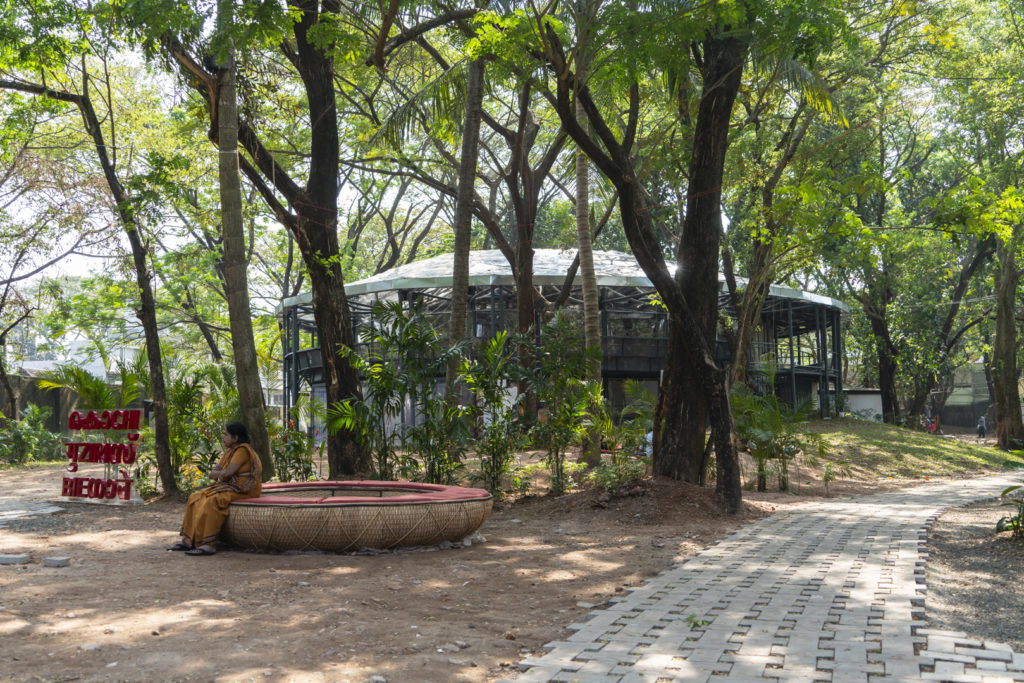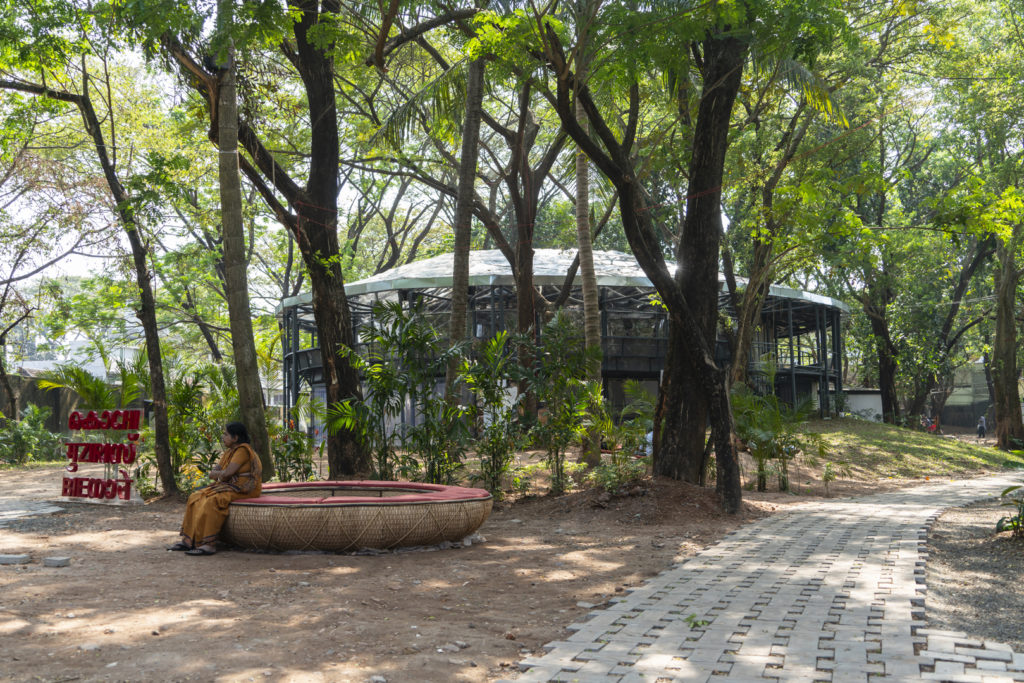[ad_1]

One of the main venues of the Kochi-Muziris Biennale, the pavilion at Cabral Yard in Kochi, India, is at the center of a legal notice sent to the Biennale by workers who claim fees associated with it have gone unpaid.
COURTESY KOCHI-MUZIRIS BIENNALE FOUNDATION
With only a few left days left in a three-month run ending Friday, India’s Kochi-Muziris Biennale, one of the premier enterprises of its kind in South Asia, has become embroiled in controversy surrounding fees allegedly owed to construction workers who helped build one of the exhibition’s key venues.
Last week, the Instagram account @justicefrombiennale18_19 began posting allegations that the biennial owes more than 12.3 million rupees (about $178,500) to a group of contractors who aided in the construction of the pavilion at Cabral Yard in Kochi, one of the Biennale’s central locations. On Friday, the account began posting portraits of workers who had contributed to the building. One portrait, of a steel fabricator named Thambii Chettan, alleges that he is still owed 40 percent of his wages; it reads, in part, “His life is stuck. He has lost the confidence to trust people.”
On March 18, lawyers working with Appu Thomas, the director of the Kerala-based contracting company Thomas Clery Infrastructures and Developers, which oversaw the pavilion’s construction, sent a legal notice to the Kochi Biennale Foundation. The notice, since obtained by ARTnews, addresses the building of a pavilion known as the Knowledge Laboratory, which Anita Dube, the curator of the Biennale, envisioned as the exhibition’s centerpiece. Lectures and musical performances have been staged at the structure, in what Dube called an “attempt to remove hierarchies of knowledge.”
[Read a review of the 2018 Kochi-Muziris Biennale.]
According to the notice, the cost of executing designs for the pavilion by the New Delhi–based firm Anagram Architects exceeded expectations, and the Biennale allegedly refused to foot the bill for facets of the pavilion that went beyond what was budgeted, including electrical work and lighting. (An alternative plan was purportedly put forward, but, according to the notice, the Biennale chose to go with the original plan.) The notice goes on to suggest that Thomas, the contractor, “has been left in a precarious financial situation” because his company had to pay the fees. It also claims Kochi Biennale Foundation, by allegedly declining to pay for costs associated with the pavilion’s construction, is “eroding the values that the Biennale as an event has always stood for.” It asks the Biennale to give Thomas 7.76 million rupees (about $112,000) to cover bills associated with the pavilion’s construction.
“They have paid every other vendor from outside the country, every other artist from outside the country,” Thomas told ARTnews. “Everyone except the local vendors, which is a double standard.” He compared the work he did for the Biennale to “slavery.”
In response to the allegations put forward on Instagram, the Kochi-Muziris Biennale released a statement on Saturday in which the foundation called Thomas and the other workers’ claims a “disinformation campaign.”
“Since the final bills submitted by the contractor were considered exorbitant, the Foundation, in mutual agreement with the contractor, appointed an independent government-approved valuer to look into this,” the statement reads. “The report submitted by the valuer has found that the bills are greatly inflated, and that the amounts demanded by the contractor are arbitrary. This matter is now being pursued legally.”
This is not the first controversy that the Kochi-Muziris Biennale has courted. In October, about two months before the exhibition opened, the Instagram account attributed to Scene and Herd posted allegations that Riyas Komu, one of the Biennale’s founders, had forcibly kissed and touched a woman. In response, Komu apologized and stepped down.
[ad_2]
Source link

